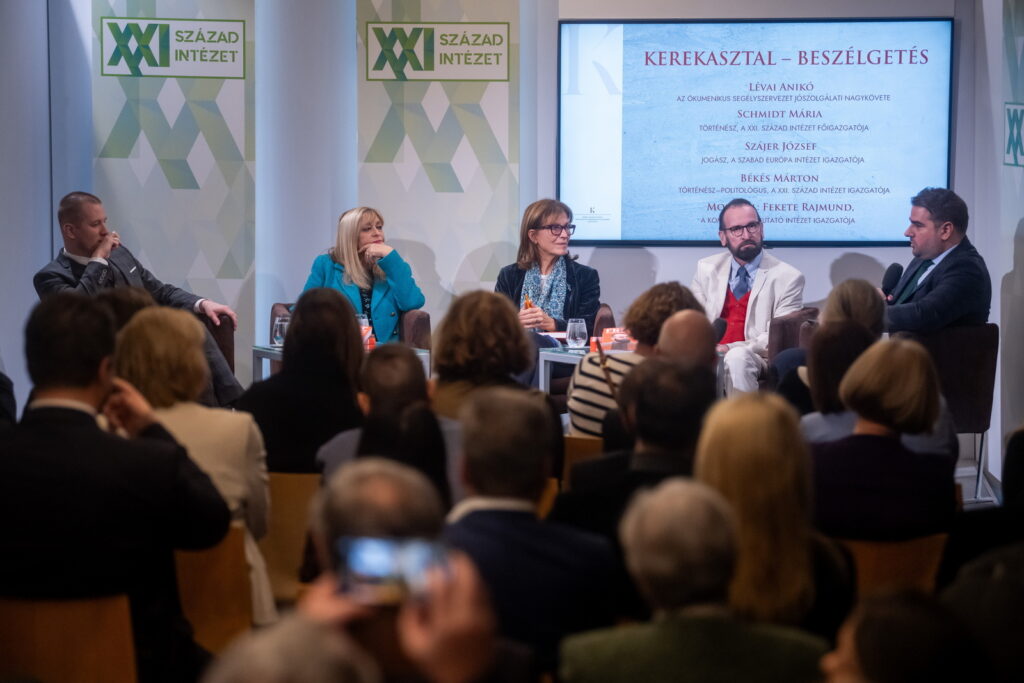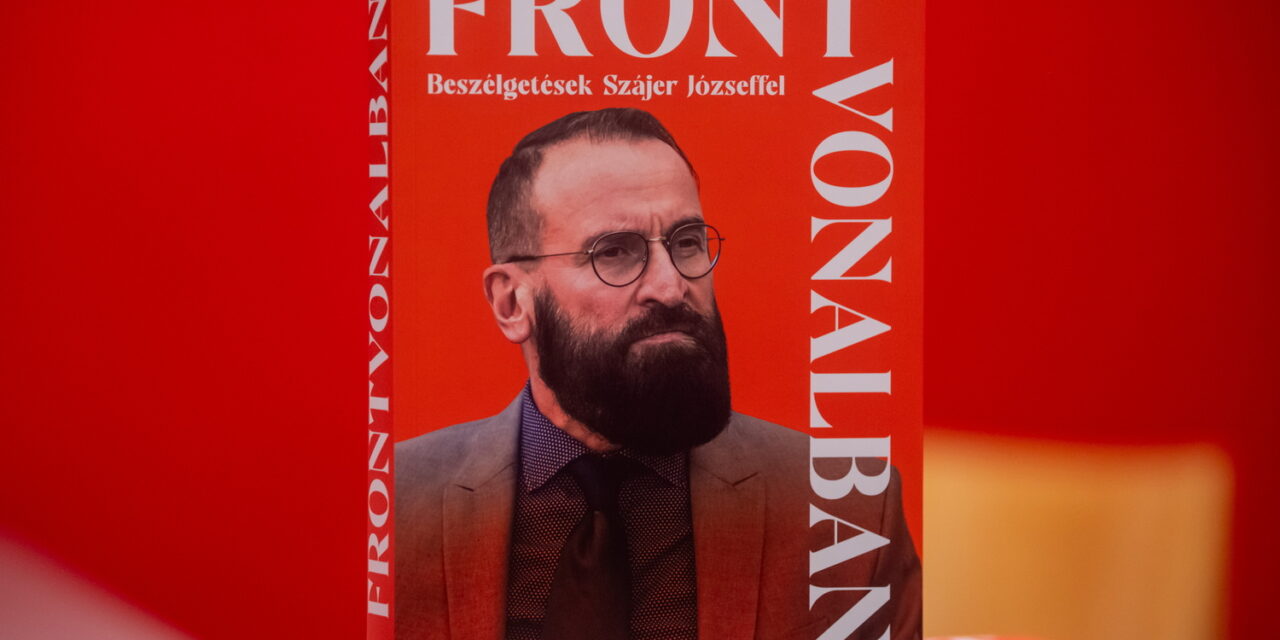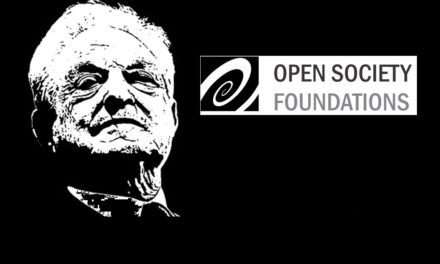I felt that I had to summarize the thirty-year period that I spent as a professional politician, which resulted in the book "Conversations with József Szájer ", declared the director of the Free Europe Institute at the launch of the book in Budapest.
József Szájer repeatedly cited the main idea of the publication during the presentation of the book of interviews published by the Central and Eastern European History and Society Research Foundation (KKETTKA) at the House of Terror Museum: " it is necessary and worthwhile to fight for national self-determination and freedom". adding, the book expresses what " a political man can say".
The former politician of Fidesz said: the time spent in politics was a bit too much for him, he was tired of the many struggles, so - as he put it - he "wanted to check out".
The entire careers of up to three politicians could have come out of these thirty years, both in Western Europe and in Hungary.
he emphasized.
He recalled that he and other leading politicians from Fidesz thought for a long time that they should be integrated into the political system established in Western Europe, but then they realized that there was really no point, because practically anything they did would only result in attacks.
The Western political elite has now forgotten the Hungarian merits gained during the regime change and now almost only "enmity us" , he said, recalling that some European politicians, in the framework of a kind of colonialist and colonialist approach, even questioned the official name of Hungary, even though Hungary was 1,100 years ago that's what it's called.
He emphasized that
for a long time, it seemed to him that anti-communism was an outdated thing, but it turned out that this was not true, because "a lot of things, including communism, are just changing and transforming".
Recalling the period of regime change, József Szájer said: at that time, they also had to decide whether Fidesz would become a party that would run in the elections, and many knowledge and lessons learned from that era.
He said that he actually became Fidesz's lawyer when, during the period of the party state, according to the law in force at the time, his establishment as a youth organization was classified as illegal.
At the suggestion of Rajmund Fekete, the director of the Communism Research Institute, the moderator of the discussion, József Szájer reflected that at the time there were quite exciting discussions about the basic law, but at the same time, he does not think that he would have written it himself.
The former politician called the expression of national unity the most important part of the constitution.

Márton Békés, the XXI. Director of the Század Institute, Mária Schmidt, Director General of the House of Terror Museum, Anikó Lévai, Goodwill Ambassador of the Ökomenikus Ségyl Organization, Prime Minister Viktor Orbán's wife, József Szájer, Director of the Free Europe Institute and Rajmund Fekete, Director of the Communism Research Institute (bj) in the Frontline - Conversations At the presentation of a book entitled József Szájer at the House of Terror Museum on November 26, 2024. The volume of interviews was published by the Foundation for Research in Central and Eastern European History and Society.
MTI/Zoltán Balogh
According to József Szájer, Hungary has gone through a lot of suffering in the course of history, but at the same time, every solution and every failure has a lesson, because it is embedded in the knowledge and subconscious of all generations
For us Hungarians, it was part of our daily lives that we were a cohesive nation, and in this regard, Hungarian performance is exceptional - he emphasized, adding: he thinks that the dilemma of belonging to the East or the West will remain an important problem for the next 1000 years.
Mária Schmidt, the XXI. During the conversation, the Director General of Század Institute described József Szájer as one of the most creative politicians of Fidesz and believed that his work benefited the entire Hungarian community.
The Director General called Fidesz an exceptional generation, a kind of " golden team " who created a new Hungary. He said:
from the moment he felt that "the communists have had enough ", when Viktor Orbán was not arrested after his taboo-breaking speech at the reburial of Imre Nagy and his fellow martyrs.
, "sending the IMF home" was an unforgivable sin , which showed that with Fidesz's government, "you have to prepare for something else" and this act of the government is still felt today in the worsening of relations with the West.
Regarding the Basic Law, Mária Schmidt said: it was not by chance that it was not completed earlier, because the previous governments were interested in adding and folding the old constitution, and that was when the " smearing" finally came to an end.
Márton Békés, the XXI. The director of Század Institute expressed his opinion: "we cannot afford to suffer the lack of the way of thinking and knowledge that József Szájer represents," he said.
According to the director, great historical eras and great generations are needed, and the current era, the National Cooperation System, gives meaning to system change even backwards.
Anikó Lévai, the goodwill ambassador of the Ecumenical Relief Organization, recalled that
József Szájer already wrote a textbook in the period immediately before the regime change, and Viktor Orbán took their exams from it.
Among other things, he said that the founders of Fidesz were also able to overcome homogenization from an intellectual point of view. For them, understanding things was really important, he said.
Gábor G. Fodor, strategic director of KKETTKA, in his eulogy, spoke, among other things, about the fact that this book does not lead you away, but introduces you to politics, it contains the history of Fidesz.
This is the book of " an exceptional fighter ", he tells the story, without him, the House of Terror Museum would not have been created, but the city of Sopron owes a lot to him, and the idea of the Hungarian Olympics also comes from him.
József Szájer is a " total player " who provided performances without which we would be fewer today, and because of him we are richer - said Gábor G. Fodor, who also encouraged those who "want to make a fuss" to read carefully.
MTI
Cover image: Presentation of the book A Frontvonalban - Conversations with József Szájer at the House of Terror Museum on November 26, 2024. The volume of interviews was published by the Foundation for Research in Central and Eastern European History and Society.
MTI/Zoltán Balogh
At the dawn of the fulfillment of a missed historical opportunity













